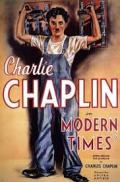




3 February
 Arsenal (Dir. Aleksandr Dovzhenko, USSR, 1928) (Screening format – not known, 87mins) Soldiers return to Ukraine to find their homeland teeming with strife and dissension, gripped in a conflict between nationalist forces and communists. One faction of soldiers, led by Timosh (Semyon Svashenko) supports the communists and takes command of a munitions factory at Kiev, converting the weapons arsenal into a fortress. Still reeling from the trauma of war, Timosh and his comrades
Arsenal (Dir. Aleksandr Dovzhenko, USSR, 1928) (Screening format – not known, 87mins) Soldiers return to Ukraine to find their homeland teeming with strife and dissension, gripped in a conflict between nationalist forces and communists. One faction of soldiers, led by Timosh (Semyon Svashenko) supports the communists and takes command of a munitions factory at Kiev, converting the weapons arsenal into a fortress. Still reeling from the trauma of war, Timosh and his comrades  engage in a violent crusade that soon spreads across Ukraine. The second half pivots on the collision of Ukrainian nationalism and Soviet power with the Reds and the Whites, the Kiev strike, massacres and executions, religious processions with serpentine banners and mighty, bushy mustaches in extreme close-up! Dovzhenko’s progressive approach to editing – he was one of the pioneers of Soviet Montage – camerawork and narrative construction mark him out as an enduringly distinctive voice whose films retain their importance to this day. Find out more at imdb.com . With live musical accompaniment by Bronnt Industries Kapital. Quad Cinema, Derby Link
engage in a violent crusade that soon spreads across Ukraine. The second half pivots on the collision of Ukrainian nationalism and Soviet power with the Reds and the Whites, the Kiev strike, massacres and executions, religious processions with serpentine banners and mighty, bushy mustaches in extreme close-up! Dovzhenko’s progressive approach to editing – he was one of the pioneers of Soviet Montage – camerawork and narrative construction mark him out as an enduringly distinctive voice whose films retain their importance to this day. Find out more at imdb.com . With live musical accompaniment by Bronnt Industries Kapital. Quad Cinema, Derby Link
4 February
 Metropolis (Dir. Fritz Lang, 1927) (Screening format –not known , 149 mins ) Made in Germany during the Weimar period, Metropolis is set in a futuristic urban dystopia and follows the attempts of Freder (Gustav Frohlich), the wealthy son of the city’s ruler, and Maria (Brigitte Helm), a poor worker, to overcome the vast gulf separating the classes of their city. Filming took place in 1925 at a cost of approximately five million Reichmarks, making it the most expensive film ever released up to that point. It is regarded as a pioneering work of science fiction and is among the most influential films of all time. Following its world premiere in 1927, half an hour was cut from Fritz Lang’s masterpiece and lost to the world. Eighty years later a spectacular discovery was made when the footage was found in a small, dusty museum in Buenos Aires. The film was then painstakingly reconstructed and digitally restored so that at last audiences could see the iconic futuristic fairy tale as Lang had envisioned it. Find out more at silentfilm.org. With recorded soundtrack. Electric Cinema, Birmingham Link
Metropolis (Dir. Fritz Lang, 1927) (Screening format –not known , 149 mins ) Made in Germany during the Weimar period, Metropolis is set in a futuristic urban dystopia and follows the attempts of Freder (Gustav Frohlich), the wealthy son of the city’s ruler, and Maria (Brigitte Helm), a poor worker, to overcome the vast gulf separating the classes of their city. Filming took place in 1925 at a cost of approximately five million Reichmarks, making it the most expensive film ever released up to that point. It is regarded as a pioneering work of science fiction and is among the most influential films of all time. Following its world premiere in 1927, half an hour was cut from Fritz Lang’s masterpiece and lost to the world. Eighty years later a spectacular discovery was made when the footage was found in a small, dusty museum in Buenos Aires. The film was then painstakingly reconstructed and digitally restored so that at last audiences could see the iconic futuristic fairy tale as Lang had envisioned it. Find out more at silentfilm.org. With recorded soundtrack. Electric Cinema, Birmingham Link
9 February
Phantom Of The Opera (Dir. Rupert Julian, 1925) (Screening format – not known, 103mins) A title that needs no introduction, The Phantom of the Opera has spawned many remakes, remasters and sequels. This original film version, produced with moments of early Technicolour, sees Lon  Chaney, the ‘Man of a Thousand Faces’ perform one of his most iconic roles. His ghastly make-up and outrageous performance made this title a benchmark in the American silent film era. The film was a critical and commercial success upon release, and still stands as an important film in cinematic history to this day, with press quotes from the time labelling the film an ‘ultra-fantastic melodrama’ (New York Times), ‘produced on a stupendous scale’ (Moving Picture World) and ‘probably the greatest inducement to nightmare that has yet been screened’ (Variety). The mysterious phantom (Lon Chaney) is a vengeful composer living in the catacombs under the Paris Opera House, determined to promote the career of the singer he loves (Mary Philbin). Famed for the phantom’s shock unmasking, incredible set designs and the masked ball sequence, it still packs a punch. Find out more at wikipedia.org. With live musical accompaniment by acclaimed musicians Minima. Stoke Golding Village Hall, Leics Link
Chaney, the ‘Man of a Thousand Faces’ perform one of his most iconic roles. His ghastly make-up and outrageous performance made this title a benchmark in the American silent film era. The film was a critical and commercial success upon release, and still stands as an important film in cinematic history to this day, with press quotes from the time labelling the film an ‘ultra-fantastic melodrama’ (New York Times), ‘produced on a stupendous scale’ (Moving Picture World) and ‘probably the greatest inducement to nightmare that has yet been screened’ (Variety). The mysterious phantom (Lon Chaney) is a vengeful composer living in the catacombs under the Paris Opera House, determined to promote the career of the singer he loves (Mary Philbin). Famed for the phantom’s shock unmasking, incredible set designs and the masked ball sequence, it still packs a punch. Find out more at wikipedia.org. With live musical accompaniment by acclaimed musicians Minima. Stoke Golding Village Hall, Leics Link
10 February
 Modern Times (Dir. Charlie Chaplin, US, 1936) (Screening format – not known, 87mins) This episodic satire of the machine age is considered Charles Chaplin’s last ‘silent’ film, although Chaplin uses sound, vocal, and musical effects throughout. Chaplin stars as an assembly-line worker driven insane by the monotony of his job. After a long spell in an
Modern Times (Dir. Charlie Chaplin, US, 1936) (Screening format – not known, 87mins) This episodic satire of the machine age is considered Charles Chaplin’s last ‘silent’ film, although Chaplin uses sound, vocal, and musical effects throughout. Chaplin stars as an assembly-line worker driven insane by the monotony of his job. After a long spell in an  asylum, he searches for work, only to be mistakenly arrested as a Red agitator. Released after foiling a prison break, Chaplin makes the acquaintance of orphaned gamine (Paulette Goddard) and becomes her friend and protector. The plotline of Modern Times is as loosely constructed as any of Chaplin’s pre-1915 short subjects, permitting ample
asylum, he searches for work, only to be mistakenly arrested as a Red agitator. Released after foiling a prison break, Chaplin makes the acquaintance of orphaned gamine (Paulette Goddard) and becomes her friend and protector. The plotline of Modern Times is as loosely constructed as any of Chaplin’s pre-1915 short subjects, permitting ample  space for several of the comedian’s most memorable routines: the automated feeding machine, a nocturnal roller-skating episode, and Chaplin’s double-talk song rendition in the nightclub sequence. In addition to producing, directing, writing, and starring in Modern Times, Chaplin also composed its theme song Smile. Find out more at charliechaplin.com. Electric Cinema, Birmingham Link
space for several of the comedian’s most memorable routines: the automated feeding machine, a nocturnal roller-skating episode, and Chaplin’s double-talk song rendition in the nightclub sequence. In addition to producing, directing, writing, and starring in Modern Times, Chaplin also composed its theme song Smile. Find out more at charliechaplin.com. Electric Cinema, Birmingham Link
12 February
 Shiraz (Dir. Franz Osten, 1928) (Screening format – DCP, 97mins) Based on a play by Indian author Niranjan Pal, Shiraz tells the fictionalised love story of the 17th-century princess who inspired the construction of the Taj Mahal. It was directed by Germany’s Franz Osten, one of at least 17 films he made in India between 1925 and 1939, best known of which are The Light of
Shiraz (Dir. Franz Osten, 1928) (Screening format – DCP, 97mins) Based on a play by Indian author Niranjan Pal, Shiraz tells the fictionalised love story of the 17th-century princess who inspired the construction of the Taj Mahal. It was directed by Germany’s Franz Osten, one of at least 17 films he made in India between 1925 and 1939, best known of which are The Light of  Asia (1925) and A Throw of Dice (1929). Shot entirely on location in India with an all-Indian cast, it features lavish costumes and gorgeous settings – all the more impressive in this restoration by the BFI National Archive with specially-commisioned score. The film was the brainchild of producer Himansu Rai, who also stars as humble potter Shiraz, who follows his childhood sweetheart (Enakshi Rama Rau) when she’s sold by slave traders to the future emperor (Charu Roy).Upon its release Shiraz was a considerable critical and
Asia (1925) and A Throw of Dice (1929). Shot entirely on location in India with an all-Indian cast, it features lavish costumes and gorgeous settings – all the more impressive in this restoration by the BFI National Archive with specially-commisioned score. The film was the brainchild of producer Himansu Rai, who also stars as humble potter Shiraz, who follows his childhood sweetheart (Enakshi Rama Rau) when she’s sold by slave traders to the future emperor (Charu Roy).Upon its release Shiraz was a considerable critical and  popular success and received rave reviews when the restored version was screened at last year’s London Film Festival. Find out more at silentfilm.org With Anoushka Shankar recorded score. Phoenix Cinema, Leicester Link
popular success and received rave reviews when the restored version was screened at last year’s London Film Festival. Find out more at silentfilm.org With Anoushka Shankar recorded score. Phoenix Cinema, Leicester Link
13 February
Shiraz (Dir. Franz Osten, 1928) (Screening format – DCP, 97mins) For details see 12 Feb above With Anoushka Shankar recorded score. Phoenix Cinema, Leicester Link
NB. Whilst every effort has been taken to ensure that the information contained in these listings is accurate, silentfilmcalendar.org can take no responsibility for any errors or inaccuracies. You are strongly advised to confirm with the venue that the event remains as detailed, particularly if traveling any distance to attend.
